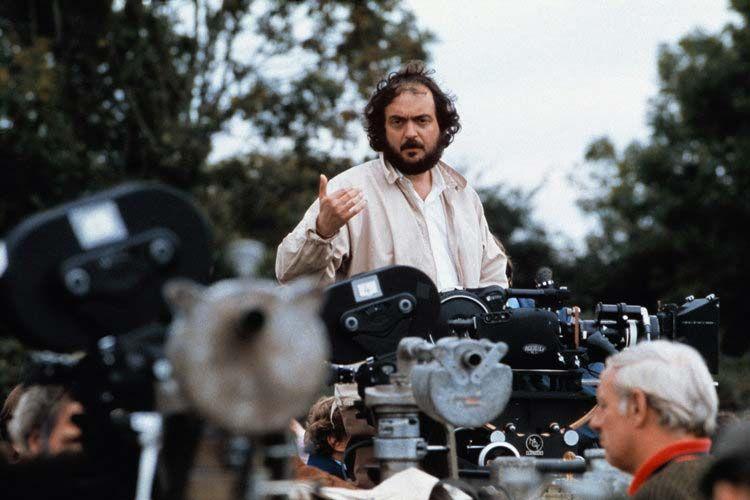In the vast landscape of cinema, few directors have ignited as much debate and admiration as Stanley Kubrick. Known for his meticulous attention to detail and visionary storytelling, Kubrick’s films have carved out a unique space in the annals of film history. Yet, with such distinction comes a dichotomy of opinions. Are his works groundbreaking masterpieces that push the boundaries of cinematic art, or do they teeter on the edge of pretentiousness, offering more style than substance? This article delves into the enigmatic world of Stanley Kubrick, exploring the duality of perspectives that his films evoke. By examining the hallmarks of his directorial approach and the varied reactions from audiences and critics alike, we aim to unravel whether Kubrick’s legacy is one of profound innovation or inflated self-importance. Join us as we navigate the fine line between brilliance and bravado in the cinematic universe of one of history’s most polarizing filmmakers.
Exploring the Cinematic Genius of Stanley Kubrick
Stanley Kubrick, a name synonymous with cinematic innovation, has long been a subject of both reverence and debate. His works, from the chilling dystopia of A Clockwork Orange to the haunting corridors of The Shining, are often seen as the epitome of artistic ambition. Yet, this ambition sometimes blurs the line between brilliance and pretension. Kubrick’s meticulous attention to detail, his relentless pursuit of perfection, and his willingness to delve into complex, often unsettling themes have made his films a cornerstone of modern cinema. But are these elements what make his films groundbreaking, or do they simply cater to an elitist notion of art?
- Visual Mastery: His use of innovative camera techniques and groundbreaking visual storytelling.
- Thematic Depth: Exploration of existentialism, human nature, and societal critique.
- Technical Precision: Kubrick’s renowned attention to detail and perfectionism in film production.
- Narrative Complexity: Layered storytelling that invites multiple interpretations.
While some may argue that Kubrick’s penchant for ambiguity and symbolism borders on the pretentious, others view these elements as a testament to his genius. His ability to craft films that challenge viewers intellectually and emotionally is unmatched. Perhaps the true genius of Kubrick lies not in whether his films are pretentious or groundbreaking, but in his capacity to provoke thought and discussion, ensuring that his work remains relevant across generations.

Balancing Artistry and Accessibility in Kubricks Filmography
Stanley Kubrick’s filmography is often a topic of heated debate among cinephiles, with opinions oscillating between accusations of pretentiousness and accolades for groundbreaking innovation. Kubrick’s unique style marries meticulous artistry with a keen awareness of the audience’s capacity for understanding, creating films that are as visually stunning as they are intellectually stimulating. His works like “2001: A Space Odyssey” and “A Clockwork Orange” showcase his ability to balance complex themes with compelling narratives, challenging viewers to delve deeper into the layers of meaning embedded within each frame.
- Artistic Complexity: Kubrick’s films often employ intricate visual symbolism and nonlinear storytelling, demanding an engaged and thoughtful viewer.
- Universal Themes: Despite their complexity, his films address universally relatable themes such as human evolution, violence, and the search for identity.
- Technical Mastery: His pioneering use of special effects and innovative cinematography techniques set new standards for the industry.
While some may view his work as esoteric or elitist, others appreciate the rich tapestry of artistic elements that invite multiple interpretations. Kubrick’s films often serve as a bridge between high art and popular culture, making them both a source of inspiration and a subject of critique. Whether perceived as pretentious or groundbreaking, his contributions to cinema continue to spark discussion and admiration, ensuring his place in the pantheon of film history.

The Debate: Pretension or Pioneering Vision
Stanley Kubrick’s films have long been at the center of a passionate debate among cinephiles and critics alike. For some, his works are hallmarks of cinematic genius, with a visionary approach that challenges traditional storytelling. Kubrick’s use of innovative techniques, like his groundbreaking special effects in “2001: A Space Odyssey” or his meticulous attention to detail in “Barry Lyndon,” showcases a commitment to pushing the boundaries of the medium. His ability to blend visual artistry with profound thematic exploration often leaves audiences in awe, redefining what cinema can achieve.
Conversely, others argue that Kubrick’s films verge on the pretentious, accusing him of prioritizing style over substance. Critics point to the often ambiguous narratives and his penchant for lengthy, deliberate pacing as evidence of an overly self-indulgent approach. They contend that Kubrick’s focus on technical perfection sometimes overshadows the emotional depth of his characters and stories. The debate often centers on whether these elements are a testament to his pioneering vision or a reflection of artistic pretension. Ultimately, the discussion includes diverse perspectives:
- Are Kubrick’s films exercises in artistic ambition or simply self-indulgent showcases?
- Do his techniques serve to enhance storytelling or distract from it?
- Is the complexity of his work an invitation for interpretation or an obstacle to enjoyment?

Critics and Fans: Diverging Views on Kubricks Legacy
- Critics: For some critics, Stanley Kubrick’s films are often seen as exercises in style over substance. They argue that his meticulous attention to detail and obsession with perfectionism result in works that can feel cold and emotionally distant. Movies like “2001: A Space Odyssey” are sometimes labeled as pretentious, with its enigmatic storytelling and abstract visuals being interpreted as self-indulgent rather than meaningful. These critics often point to Kubrick’s tendency to prioritize technical innovation and aesthetic over narrative coherence, suggesting that his films can leave audiences feeling more puzzled than enlightened.
- Fans: On the other side of the spectrum, fans hail Kubrick as a visionary who broke new ground in cinema. They celebrate his ability to push the boundaries of film as an art form, transforming genres and challenging conventional storytelling. Admirers argue that the ambiguity and complexity found in his films are intentional, encouraging viewers to engage more deeply and reflect on profound themes. Works like “A Clockwork Orange” and “The Shining” are praised for their innovative techniques and bold narratives, solidifying Kubrick’s status as a groundbreaking auteur whose influence is undeniable in the world of filmmaking.








